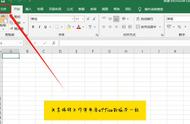这里对仁爱版 七年级上册英语 UNIT 3 Getting Together知识点总结,以便于学生核对及查漏补缺:

Unit 3 Getting Together
一、 重点短语
1. Could you please 动词原形……?用来表示委婉的请求
Could you please tell me your name?
--- Sure/ No problem. My name is Sally.
--- Sorry.
2. tell sb. sth. = tell sth. to sb. 告诉某人某事
3. tell sb. about sth. 告诉某人关于某事
Please tell me your name. = Please tell your name to me.
please tell Maria about it. 请把这件事告诉玛丽亚吧。
4. help sb. do sth.= help sb. with sth. 在某方面帮助某人,帮助某人做某事
Please help us find him.
Could you please help me with English?
= Could you please help me study English?
5. want to do sth.= would like to do sth. 想要做某事
want sth. = would like sth. 想要某物
want sb. to do sth. 想要某人做……
He wants to visit Beijing. = He would like to visit Beijing.
I want/would like an orange.
Jane wants Kangkang to sing some songs with her.
6. show sth. to sb.= show sb. sth. 把某物展示给某人看
Maria shows a photo of her family to Kangkang.
7. My English is very good. =I can speak English very well.
8. live in 地点 居住在某地
live with sb. 和某人住
He live in China with his parents.
9. know a lot about…… 知道许多关于……的事
He knows a lot about China.
10. say表示说话的内容,speak表示说某种语言的能力
What does he say in the letter?
He can speak some English.
11. 对事物的喜欢程度
like……very much/a lot非常喜欢
like……a little 有点喜欢
don’t like……at all 一点都不喜欢
Many students in our class like English a lot, but I like it a little.
He doesn’t like chocolate at all.
12. a lot=very much放在句末,修饰动词,“非常,很” 例:I like the boy a lot/ very much.
a lot of或lots of 可数名词复数/不可数名词
I have a lot of English books. These books help me a lot with my English.
13. every day 每天 each other 相互,彼此 help each other / talk to each other
14. some of them他们中的一些 many of them他们中有很多
eat out 下馆子,到外面吃饭
15. play with sb. 和某人一块玩耍
16. like to do 与like doing sth. 喜欢(做)某事
辨析:
like doing 表示:长期喜欢,有爱好的意思
like to do 表示:临时喜欢,常指某个具体的动作。可翻译成:想做某事
如:She likes swimming.她喜欢游泳。(经常性的爱好)
She likes to swim this afternoon.她今天下午想游泳。(特指某一次的动作)
另外,在搭配(使用方法)上,还有一点区别
1.“ like to do ”一般与 “ would ” 搭配表示意愿。
例:I would like to swim with you . 我愿意和你去游泳。
Would you like to skate? 你愿意去滑冰吗?
2“ like doing ” 表示爱好
例:I like watching TV . 我喜欢看电视。
Do you like singing? 你喜欢唱歌吗?
17. Help yourself/yourselves to sth. 随便吃(喝)……
18. be kind to sb. 对某人很友好
They are all kind to me. 他们对我很友好。
It’s very kind of you. 你真好。
19. be glad to do sth. 很高兴(乐意)做……
I am very glad to be here. 我很乐意在这里。
Glad to meet you. 很高兴见到你。
20. let sb. do sth. 让某人做某事(let:使役动词)
Let me see.让我想一想。
Let us help you find him. 让我们帮助你找到他。
21. I am home. 我到家了。
Maria isn’t at home/in now. 玛丽亚现在不在家。
Welcome to my home. 欢迎来我家。
It’s time to go home. 该回家了。
二、 重点句型
1. 实义动词变一般疑问句及其回答:
Does he speak English? --- Yes, he does./ No, he doesn’t.
Do you like Chinese? --- Yes, I like it very much/ a lot/ a little.
--- No, I don’t like it at all.
2. 询问职业及工作地点:
What does your mother do?(书面)
What is your mother?(口语) --- She is an English teacher.
Where does she work? --- She works/ teaches/studies ……
in a school / hospital / restaurant on a farm in an office
3. 介绍家人
This is a photo of my family.
The young woman in red is my mother.
Is the young woman in red your mother?(变一般疑问句)
Who is the young woman in red?(对划线部分提问)
My grandparents, my cousin and I are on the sofa.
I have a big family. 我有一个大家庭。
I love my family. 我爱我的家。
4. 有用的就餐表达语
1) Would you like something to drink ? 想不想喝些东西?
---Yes, a glass of apple juice, please. / No, thanks.
something to drink 一些喝的东西 something to eat一些吃的东西
2) What would you like to have / eat / drink ? 你想吃(喝)些什么?
---I’d like some rice and chicken. / Let me see. 我想想看。
3) Would you like to have dinner with me? 想和我共进晚餐吗?
---Yes, I’d love to. / Yes, I’d like to.
---- I’m sorry I have to…
4) What do you usually have for breakfast? 你通常早餐吃什么?
---I usually have milk and bread for breakfast.
have … for breakfast/ lunch / dinner 早/午/晚餐吃……
5) May I take your order ,sir ? 请问,要点菜了吗?
---Fish with vegetables and rice , please .
6) May I help you ? = Can I help you ? =What can I do for you ? 请问要吃/喝/买些什么?
5. 委婉地请求、提建议的五种表达
Would you like sth. / to do …? 你愿意/想……?
What / How about sth. / doing …? ……怎么样?
Why not do …? = Why don’t you do …? 为什么不……?
Let’s do …! 让我们干……吧!
肯定回答:Yes, I’d like/love to. /Good idea. /OK. / All right./ I’d love that./
Thanks, that would be very nice.
否定回答: No, thanks. / I’m sorry I can’t, I have to do…/
I’d like that, but I’m sorry I have no time.
三、 人称代词的主格与宾格:
点拨:主格在句子中充当主语,放在动词之前;
宾格放在动词之后构成动宾短语,放在介词之后构成介宾短语。
主格
I
we
you
he
she
it
they
宾格
me
us
you
him
her
it
them
Do you know them? --- Yes. They are my new classmates.
Do they go home with us? 他们和我们一块回家吗?
四、 可数名词与不可数名词
1. 可数名词:可以用数目来计数的名词,有单数和复数之分。
如banana, egg, apple, orange, noodles, vegetable, hamburger
2. 不可数名词:不能用具体的数目来表示,前面不能加a/an,没有复数形式。
如milk, chicken, bread, Coke, coffee, rice, juice, fish, tea, water, chocolate
3. 不可数名词若要表示数量,可用:数词 量词 of 不可数名词/可数名词复数。
如:a glass of milk 一杯牛奶; ten bottles of apple juice十瓶橙汁;a pair of shoes/pants;
ten loaves of bread 十条面包; five kilos of apples 五公斤苹果;
some/ a lot of 可数名词的复数/ 不可数名词
4 many 可数名词的复数
much 不可数名词
五、 书信的格式
1. 称呼:顶格写,常用Dear … 开头,表示亲切、客套,后面用逗号。
2. 正文:从称呼的下一行开始写,开头空两格。
3. 结束语:正文下面的客套话,写在右下角,首字母大写,末尾用逗号,常用Yours。
4. 签名:指写信人的签名,写在结束语的下面。
词组:
1. Could you (please)…… (后接动词原形) 你愿意做某事吗?
May I …… (后接动词原形) 我能做某事吗?
2. What does he say in the letter? 他在信里说了些什么?
What does he say on the photo? 他在电话里说了些什么?
3. do sth with sb. 和某人一起做某事 (with 和)
4. No problem 没问题
5. speak 语言 说某种语言 speak English speak Chinese
6. the Great Wall 长城
7. come/go to 地点:去某地,但home , here, there 这些是副词,前面不能加to
例:go home / come here / go there
go to do sth 去做某事 例: They go to play basketball.
8. like doing sth 喜欢做某事 like to do sth 想要做某事
9. help sb. with sth = help sb. (to) do sth 帮助某人某事
10. at home 在家 be home到家 in one’s home 在某人的家里
11. have a seat / sit down 请坐下
12. office worker 办公室职员 cook 厨师 cooker炊具
13. on a farm 在农场上 on the sofa 在沙发上
14. a photo of one’s family 某人的全家照 Family Tree 家谱 (首字母都大写)
15. in a hospital 在医院(纯属地点概念) in hospital 因病住院
例:He is ill in hospital. 他生病住院
He is in a hospital.他在医院里 (不一定是因为生病来到医院)
16. look after sb. 照顾某人
17. teach sb. sth. = teach sth to sb. 教某人某东西
teach sb. to do sth 教某人做某事
18. help oneself ( to sth. ) 请随便(吃……) Help yourself/ yourselves (to fish)
19. I’d like sth = I would like sth. 我想要……
20. Would like to do sth = want to do sth 想要做某事
21. Would you like something to eat (drink)? 你想要一些吃(喝)的东西吗?
to eat 或 to drink 修饰something,作为后置定语。
22. Here you are . 给你 Here we are. 我们到了
23. What about …= How about … ……怎么样?
后接代词或名词,还可以接动名词(即 What about doing sth )
24. all right 好的
25. a cup of tea 一杯茶 two cups of tea 两杯茶
26. milk for me 我要牛奶
27. Why not ……(后接动词原形) = Why don’t you …… (后接动词原形)
为什么不做某事呢?
回答:Good idea 好主意;
28. May I take your order ? 可以点菜了吗?
29. wait a moment = just a moment 等一下,请稍侯 wait for sb. 等待某人
30. Can I help you ?= May I help you? = What can I do for you? 需要点什么帮忙吗?
31. eat out 出去吃饭
32. let sb. do sth 让某人做某事
33. have dinner/ breakfast /lunch/supper 吃正/早/午/晚 餐
34. a kind of 一种…… all kinds of 各种各样的……
35. be friendly to sb. = be kind to sb. 对某人友好
36. such as 例如 例:I like fruits, such as oranges, bananas and apples
37. be glad to do sth 例: I am glad to meet you, I am glad to be here..
:
,










